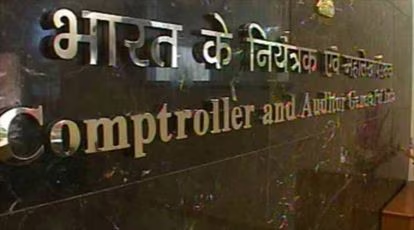Noida/Lucknow:
A damning performance audit by the Comptroller and Auditor General (CAG) of India has revealed massive procedural lapses and governance failures in the Greater Noida Industrial Development Authority (GNIDA), leading to notional losses of ₹13,362 crore to the state exchequer.
The audit — covering 2005-06 to 2017-18 and updated till April 2021 — exposed irregularities in planning, land acquisition, pricing, and plot allotment, resulting in long delays, revenue losses, and distress for thousands of homebuyers.
Also Read:- Indirapuram Property Prices in Ghaziabad Rise 73% Due to New Delhi–Meerut Expressway and RRTS Transport Links
Key Findings of the Audit
- Massive Dues from Group Housing Projects
- ₹10,732 crore in pending dues arose from irregularities in group housing plot allotments alone.
- Out of 94 group housing plots allotted between 2005-06 and 2014-15 (later subdivided into 186 over 2,017 acres), only 27 projects (18%) were completed by April 2021.
- 81% of allottees had dues pending; ₹7,100 crore remained overdue for over three years in 66 cases.
- Despite defaults, GNIDA failed to cancel non-compliant allotments as per policy.
Projects Launched Without Approval
- Eight of nine group housing schemes were launched without prior board approval.
- Three schemes were never placed before the board for even ex-post facto approval.
Poor Enforcement and Breach of Public Trust
- Builders were allowed to:
- Mortgage plots despite pending dues.
- Subdivide or transfer ownership before completing projects.
- Allotments were underpriced, and brochure conditions were selectively relaxed.
- Urgency provisions for land acquisition were misused, bypassing farmers’ rights.
- The CAG noted “serious lapses of probity, integrity, and ethics” within GNIDA.
Also Read:- Delhi Mumbai Expressway: Route Map | Status | Village List | News
Industrial Development Sidetracked
- GNIDA, formed under the UPIAD Act, 1976 to drive industrialisation, diverted focus to residential projects.
- Under the Master Plan 2021:
- Residential land development reached 104.04% of the planned area.
- Industrial land development lagged at 67.47%.
- Of 2,580 industrial plots allotted since 1991, only 1,341 (52%) were operational, with delays of up to 19 years.
- Nearly half the industrial projects remained incomplete, hampering job creation.
Financial Losses from Land Acquisition
- Poor due diligence and repeated proposal changes led to avoidable expenses, including:
- ₹527.84 crore in excess compensation.
- Overpriced direct land purchases.
Also Read:- Delhi-Mumbai Industrial Corridor: Route Map | Status | Completion Date
Audit Scope
The CAG audit, ordered by the Uttar Pradesh government in July 2017, assessed:
- Transparency in land acquisition and allotment for industrial, residential, commercial, sports city, institutional, IT, and farmhouse purposes.
- Compliance with master plans, pricing norms, and statutory approvals.
- Internal control mechanisms and governance structure.
The findings highlighted systemic failures across all levels — from the GNIDA Board to operational staff — with damaging effects on revenue, industrialisation, and the rights of farmers and homebuyers.
GNIDA’s Response
GNIDA General Manager (Finance) Vinod Kumar stated that allotment policies have been revised to prevent future errors. Efforts are underway to recover pending dues in line with CAG recommendations.
Also Read:- Stamp Duty and Registration Charges in Delhi 2025 | Housiey
CAG’s Warning
The report calls for:
- Stronger enforcement and accountability.
- Transparent decision-making.
- Strict adherence to statutory requirements.
- Overhaul of GNIDA’s governance framework to restore public trust.
With billions in public money at stake and projects delayed for years, the findings raise pressing questions about oversight and accountability in large development authorities nationwide.
Noida/Lucknow:
A damning performance audit by the Comptroller and Auditor General (CAG) of India has revealed massive procedural lapses and governance failures in the Greater Noida Industrial Development Authority (GNIDA), leading to notional losses of ₹13,362 crore to the state exchequer.
The audit — covering 2005-06 to 2017-18 and updated till April 2021 — exposed irregularities in planning, land acquisition, pricing, and plot allotment, resulting in long delays, revenue losses, and distress for thousands of homebuyers.
Also Read:- Indirapuram Property Prices in Ghaziabad Rise 73% Due to New Delhi–Meerut Expressway and RRTS Transport Links
Key Findings of the Audit
- Massive Dues from Group Housing Projects
- ₹10,732 crore in pending dues arose from irregularities in group housing plot allotments alone.
- Out of 94 group housing plots allotted between 2005-06 and 2014-15 (later subdivided into 186 over 2,017 acres), only 27 projects (18%) were completed by April 2021.
- 81% of allottees had dues pending; ₹7,100 crore remained overdue for over three years in 66 cases.
- Despite defaults, GNIDA failed to cancel non-compliant allotments as per policy.
Projects Launched Without Approval
- Eight of nine group housing schemes were launched without prior board approval.
- Three schemes were never placed before the board for even ex-post facto approval.
Poor Enforcement and Breach of Public Trust
- Builders were allowed to:
- Mortgage plots despite pending dues.
- Subdivide or transfer ownership before completing projects.
- Allotments were underpriced, and brochure conditions were selectively relaxed.
- Urgency provisions for land acquisition were misused, bypassing farmers’ rights.
- The CAG noted “serious lapses of probity, integrity, and ethics” within GNIDA.
Also Read:- Delhi Mumbai Expressway: Route Map | Status | Village List | News
Industrial Development Sidetracked
- GNIDA, formed under the UPIAD Act, 1976 to drive industrialisation, diverted focus to residential projects.
- Under the Master Plan 2021:
- Residential land development reached 104.04% of the planned area.
- Industrial land development lagged at 67.47%.
- Of 2,580 industrial plots allotted since 1991, only 1,341 (52%) were operational, with delays of up to 19 years.
- Nearly half the industrial projects remained incomplete, hampering job creation.
Financial Losses from Land Acquisition
- Poor due diligence and repeated proposal changes led to avoidable expenses, including:
- ₹527.84 crore in excess compensation.
- Overpriced direct land purchases.
Also Read:- Delhi-Mumbai Industrial Corridor: Route Map | Status | Completion Date
Audit Scope
The CAG audit, ordered by the Uttar Pradesh government in July 2017, assessed:
- Transparency in land acquisition and allotment for industrial, residential, commercial, sports city, institutional, IT, and farmhouse purposes.
- Compliance with master plans, pricing norms, and statutory approvals.
- Internal control mechanisms and governance structure.
The findings highlighted systemic failures across all levels — from the GNIDA Board to operational staff — with damaging effects on revenue, industrialisation, and the rights of farmers and homebuyers.
GNIDA’s Response
GNIDA General Manager (Finance) Vinod Kumar stated that allotment policies have been revised to prevent future errors. Efforts are underway to recover pending dues in line with CAG recommendations.
Also Read:- Stamp Duty and Registration Charges in Delhi 2025 | Housiey
CAG’s Warning
The report calls for:
- Stronger enforcement and accountability.
- Transparent decision-making.
- Strict adherence to statutory requirements.
- Overhaul of GNIDA’s governance framework to restore public trust.
With billions in public money at stake and projects delayed for years, the findings raise pressing questions about oversight and accountability in large development authorities nationwide.







